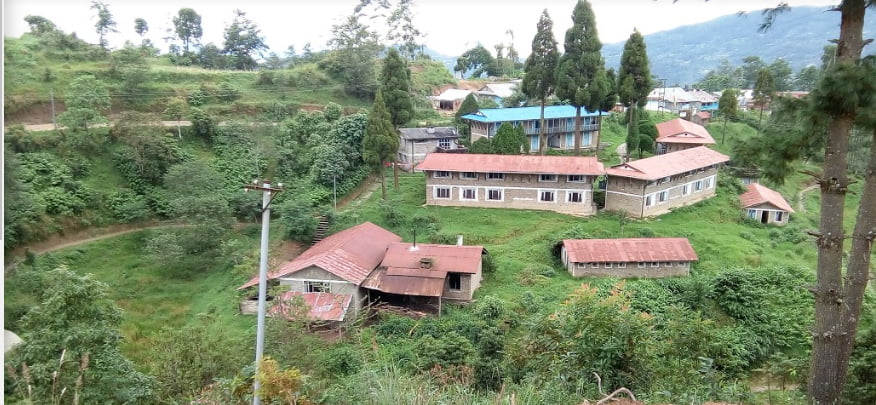Overview
Diploma in Agriculture (Plant Science) at Uttarpani Polytechnic Institute, Dhankuta
Overview
The Diploma in Agriculture (Plant Science) at Uttarpani Polytechnic Institute, Dhankuta, is a 3-year, full-time program focused on crop production, agroecology, and sustainable farming practices.
Affiliated with the Council for Technical Education and Vocational Training (CTEVT), this course addresses Nepal’s agricultural challenges by training professionals in crop management, soil health, and environmental conservation. With 40 seats available annually, top-performing students in the CTEVT entrance examination receive a 10% scholarship.
Graduates are prepared for farming, agribusiness, and rural development roles, contributing to food security and sustainable agricultural practices.

Curriculum Details
The program integrates theoretical knowledge with practical fieldwork to build expertise in plant science and sustainable agriculture:
-
Core Courses :
-
Crop Production and Management
-
Soil Science and Fertility
-
Agroecology and Climate-Smart Agriculture
-
Plant Breeding and Genetics
-
Agricultural Machinery and Technology
-
Pest and Disease Management
-
-
Electives :
-
Organic Farming Practices
-
Agroforestry Systems
-
Post-Harvest Technology
-
-
Practical Sessions :
-
Field training in seed production, soil testing, and crop rotation techniques.
-
Hands-on experience in pest control, irrigation systems, and farm machinery operation.
-
Objectives
The program aims to:
-
Train professionals to enhance agricultural productivity through sustainable practices.
-
Develop skills in crop management, soil conservation, and integrated pest management (IPM).
-
Prepare graduates to advise farmers on modern techniques and climate-resilient farming.
-
Foster understanding of agribusiness principles for entrepreneurship in rural areas.
Scope
Graduates can pursue roles across multiple sectors:
-
Agricultural Extension: Advising farmers on crop selection, soil health, and pest management.
-
Government Agencies: Working in departments like the Department of Agriculture or agricultural research institutes.
-
Agribusiness: Roles in seed companies, fertilizer manufacturers, or farm equipment suppliers.
-
NGOs and Development Organizations: Supporting initiatives in food security, organic farming, and rural livelihoods.
-
Entrepreneurship: Starting private farms, agro-consulting services, or value-added product ventures (e.g., organic produce).
Skill Development Modules
-
Crop Management: Learning techniques for planting, harvesting, and post-harvest storage.
-
Soil Health: Practical training in soil testing, nutrient analysis, and fertilizer application.
-
Technology Use: Utilizing tools like GIS mapping for crop monitoring and precision agriculture.
-
Entrepreneurial Skills: Business planning, market analysis, and farm management strategies.
Teaching Methodology
The program combines academic learning with real-world application:
-
Lectures and Seminars: Covering agroecology, plant pathology, and policy frameworks.
-
Field Visits: Collaborations with local farms and research stations to study crop varieties and farming systems.
-
Laboratory Work: Soil analysis, pest identification, and seed viability testing.
-
Internships: Partnerships with agricultural companies and NGOs to gain experience in agribusiness and field extension.
-
Guest Lectures: Experts discuss innovations like drought-resistant crops and climate-adaptation strategies.
Faculty Expertise
Faculty members are experts in:
-
Agronomy and crop science.
-
Soil and water management.
-
Agribusiness and rural development.
-
Sustainable farming and policy implementation.
Admission Requirements
To enroll:
-
Hold a Secondary Education Certificate (SLC) with science subjects (Physics, Chemistry, Biology) and a minimum of 40% marks.
-
Pass the CTEVT entrance examination.
-
Preference may be given to candidates from Dhankuta and neighboring regions.
Career Opportunities
Graduates can pursue roles such as:
-
Agricultural Technician: Advising farmers on crop practices and soil health.
-
Crop Consultant: Designing farm plans and pest management strategies for agribusinesses.
-
Agribusiness Manager: Overseeing operations in seed companies or agricultural cooperatives.
-
Soil Conservation Officer: Implementing projects to prevent erosion and improve land productivity.
-
Research Assistant: Supporting studies on plant genetics or climate-smart agriculture.
Student Life and Extracurricular Activities
Students can engage in activities that complement their studies:
-
Farm Visits and Internships: Learning from organic farms and agro-based industries.
-
Agricultural Workshops: Training on drone technology for crop monitoring or organic certification processes.
-
Community Projects: Organizing workshops on sustainable farming for rural communities.
Scholarships and Financial Aid
-
CTEVT Scholarships: Awarded to top entrance exam performers (10% tuition waiver).
-
Institute Scholarships: Merit-based awards for high academic achievers.
-
Government Schemes: Access to loans and subsidies under Nepal’s technical education support programs.
Why Choose This Course?
-
Practical Focus: Emphasis on fieldwork ensures readiness for agricultural challenges.
-
CTEVT Recognition: Graduates qualify for roles in both the public and private sectors.
-
Relevance: Addresses Nepal’s need for sustainable farming solutions and rural development.
Why Choose Uttarpani Polytechnic Institute?
-
Location: Situated in Dhankuta, a region with diverse agro-climatic zones for practical learning.
-
Infrastructure: Access to modern labs, demonstration farms, and soil and crop analysis equipment.
-
Experienced Faculty: Mentors with expertise in agricultural science and rural development.
Conclusion
The Diploma in Agriculture (Plant Science) at Uttarpani Polytechnic Institute equips students with the skills to drive innovation in Nepal’s agricultural sector. By blending theoretical knowledge with hands-on experience, the program prepares graduates to tackle food security challenges, promote sustainable practices, and support rural economies. Prospective students are encouraged to apply through the CTEVT portal and contact the institute for further details.














